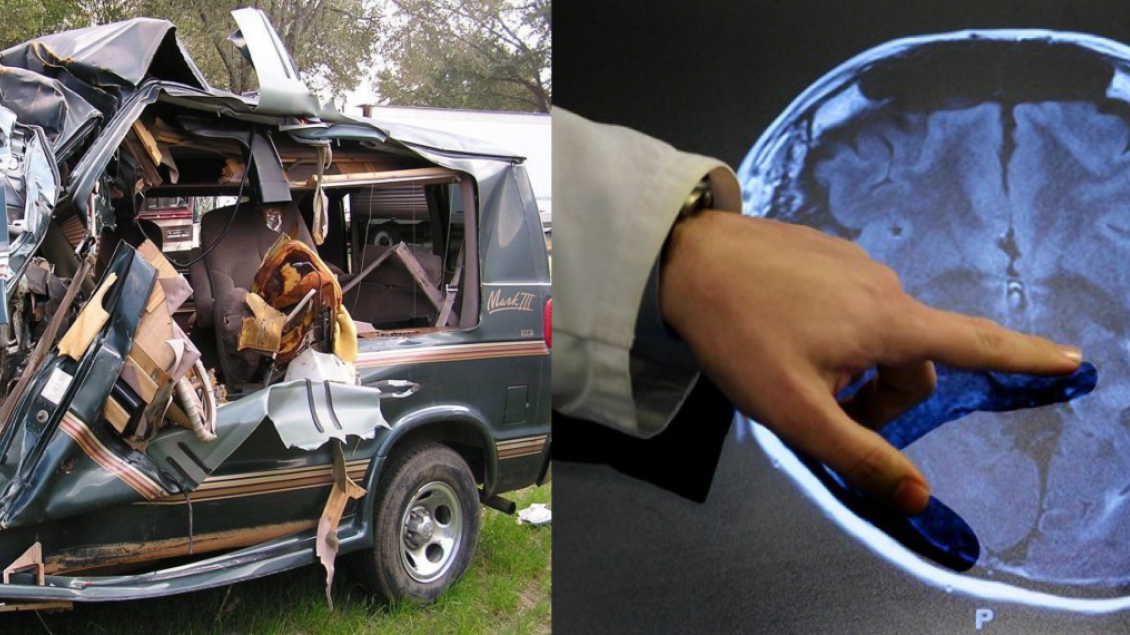
We would like your feedback about a research study that may be conducted in Ann Arbor, MI. Physicians at Michigan Medicine plan to participate in a national multi-center study funded by the National Institutes of Health (NIH) about the emergency care for patients with severe traumatic brain injury (TBI). The study is called BOOST3. BOOST3 is a research study designed to learn if either of two alternative strategies for monitoring and treating patients with TBI in the intensive care unit (ICU) is more likely to help them get better.
Participants in this study are put at random, that is by chance, in one of 2 groups. One group has medical care based on monitoring of pressure in the brain (intracranial pressure or ICP) alone. The other group has medical care based on both ICP and the amount of oxygen in the brain (brain tissue oxygen or PbtO2). It is unknown if measuring and treating low brain oxygen is more effective, less effective, or the same as monitoring and treating high brain pressure alone.
Treatment differs by group because doctors make decisions guided by ICP and PbtO2 goals. These decisions include the kinds and doses of medications given. They also include the amount of fluids given by vein. Other treatments that may differ can also include changing ventilator (breathing machine) settings, blood transfusions, and other parts of medical care. ICP and PbtO2 are monitored by small sensors placed in the brain through one or two small holes made in the skull. Placing one or both of these monitors is standard care for people with severe TBI. They are placed within hours of arrival at the hospital. Those in the study will have both monitors placed.
The study will involve patients brought to a participating hospital Emergency Department who meet the following general enrollment criteria:
- 18 years or older
- Blunt closed head injury
- Severe brain injury
- Can start the study immediately following placement of brain sensors
Both of these alternative strategies are used in standard care at the study hospitals. In both strategies, doctors monitor the patient’s brain and modify the medical care provided in order to try to improve some measure of the brain’s health. However, it is not known which measure of the brain’s health, intracranial pressure or oxygen level, is more important. The results of this study will help doctors discover if one of these methods is more safe and effective.
Normally, researchers get permission (consent) before a person can be included in a study. A person with a severe TBI, however, will be comatose. Patients with severe TBI will not be able to give consent at the time of injury. When possible, consent to participate in the study is sought from the family member or legal representative of a patient with severe TBI before including the patient in a study. However, since emergency care for a patient with severe TBI must start quickly, there might not be enough time to locate and talk to the person’s family member or legal representative about the study. In this situation, a patient with severe TBI might be enrolled in this study without his/her family member or representative providing consent.
Exception from Informed Consent (EFIC)
Once the family member or legal representative is located, they will be asked to give their permission for the patient with severe TBI to continue in the study. The U.S. federal government has created a set of special rules for exception from informed consent for emergency research.
EFIC can only be used when:
- The person’s life is at risk, AND,
- The best treatment is not known, AND
- The study might help the person, AND
- It is not possible to get permission:
- from the person because of his or her medical condition nor
- from the person’s guardian because there is a very short amount of time required to treat the medical problem
Before researchers may do a study using EFIC, they must provide information about the study to the community and get their feedback. That is why we are writing to you today.
Please follow this link to complete an online survey: http://bit.ly/BOOST3CommunitySurvey
By completing this survey, you will be taking part in an important discussion about the study called “community consultation.” Your feedback is important to us. Having now read about the study, please complete the survey and tell us what you think about the study.
If you would not want to be included in the study in the unlikely and unfortunate circumstance that you suffered a future TBI, you can let us know that as well. If you would not want to be enrolled, you can send us an e-mail with your contact information, and the study team will provide you with a medical alert bracelet that says “BOOST3 Declined.” Wearing this bracelet communicates your wishes to emergency doctors, nurses, and researchers when you cannot. If you suffer a severe TBI and do not take part in the study, you will receive the standard medical care for TBI.
If you would like to read more about this study, please visit the national website at www.boost3trial.org, or contact our local study team at [email protected].